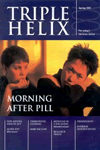This is a compendium by ten Muslim authors whose aim is to enlighten non-Muslim health care workers about the religion, customs and world view of Islam, so that they may better understand their Muslim patients and so give more sensitive care. The book contains chapters on the origins of the Muslim communities in Britain, the nature and beliefs of Islam, and a review of the Islamic view of health and disease. There are chapters on the family, birth and death, the fast and the Hajj (the pilgrimage).
The perspective of the writers is that of scholarly Qur'anic Islam tempered by European experience. A Muslim friend admired it greatly and referred to it as 'pure Islam'. Unfortunately, it is this very purity that is the book's greatest drawback. The great majority of Muslims in England originate from rural communities whose Islamic faith is mixed with pre-Islamic occult beliefs and magic practices. While all Muslims will unhesitatingly endorse the contents of this book as being mainline orthodox Islam, these 'folk Islamic' beliefs are not mentioned. This omission is all the more serious where health is concerned. In Muslim communities originating from the Indian sub-continent belief in the evil eye and its effects is endemic, and many have had recourse to it, but of this there is no mention at all.
Doubtless these omissions reflect cultural and religious tensions; theological 'high' Islam has difficulties in reconciling itself with the religion of the majority, often labeling it 'not Islam'. While indeed it may be un-Islamic, it is what the majority of Muslims in Britain believe and live out today.
The chapters on birth, death and the family are full of fascinating and informative detail, but reflect an ideal rather than the reality of Muslim family life today. The major problems facing the new generation of Muslims are not mentioned: the explosive tensions arising out of many arranged marriages; the struggles and frustrations of women who, after four decades in Britain, are just achieving the kind of opportunities and freedom that women in some other Muslim societies take for granted; the confusion of the elderly whose own rote education in Bangladesh or Pakistan has not enabled them to understand why their children have grown up so differently from themselves. Beside these major upheavals, a discussion on the difficulties of obtaining circumcision for boys seems secondary.
The book does have redeeming features - take the case histories, for example. These are set in frames and are far more human, honest and down to earth than the text itself. The section that deals with the devotion and love which Muslims have for the Prophet Mohammed is of great importance.
The central weakness of the book is that its historical-theological perspective does not by itself give us an insight into the hearts of people today. Anthropology and sociology are better equipped to do that. There is a real need for literature of this kind but it needs to reflect what is, not what might or ought to be.
Reviewed by
Robin Fisher
General Practitioner in Birmingham































